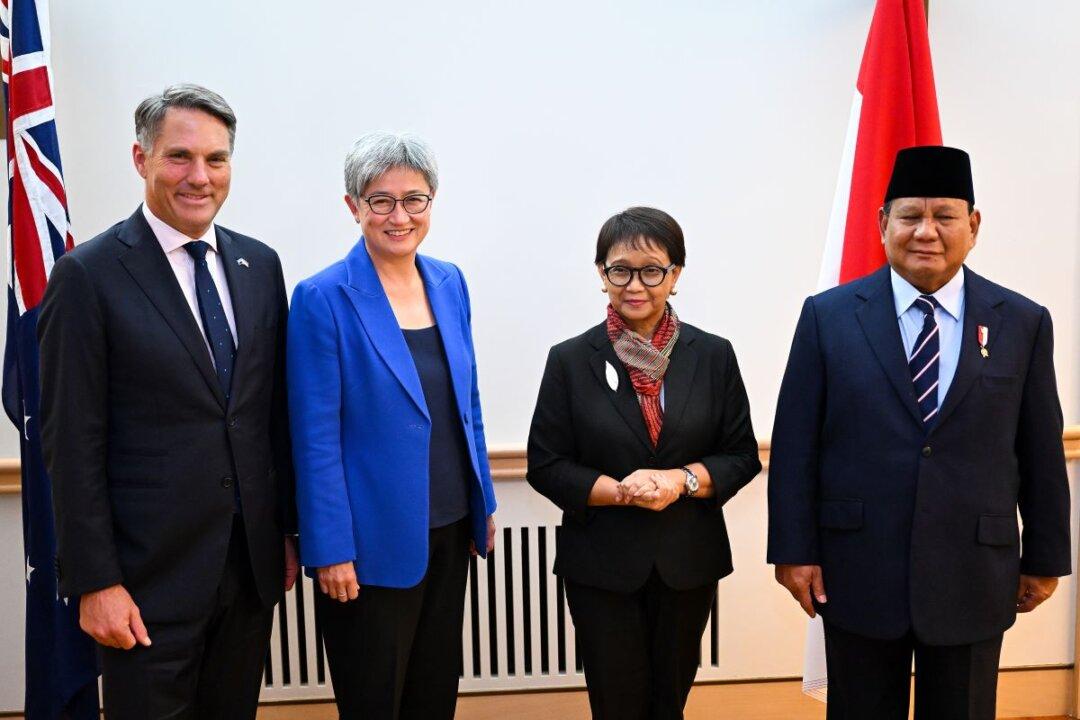Indonesia and Australia are set to boost regional security ties after the countries announced that they would upgrade their existing defence partnership agreement to a cooperation agreement that will be binding under international law.
In a joint media release on Feb. 10, Australian Deputy Prime Minister and Defence Minister Richard Marles and his Indonesia counterpart, the Indonesian Defence Minister Pranowo Subianto, said that the countries intend for the new agreement to bolster strong defence cooperation between the two countries.




